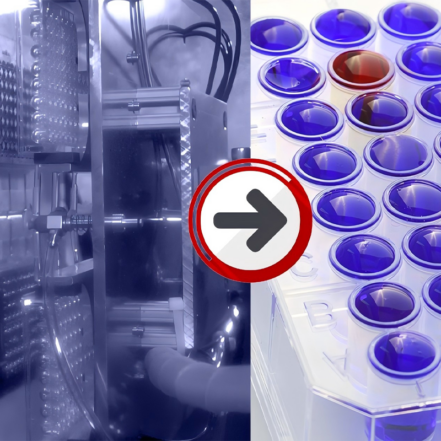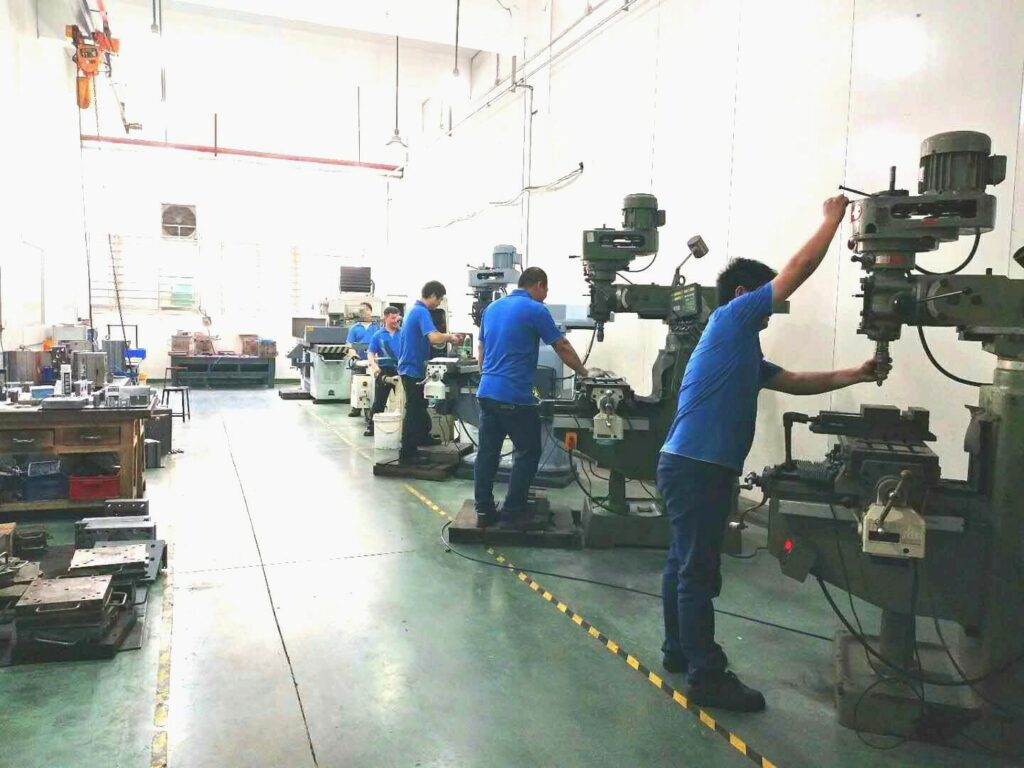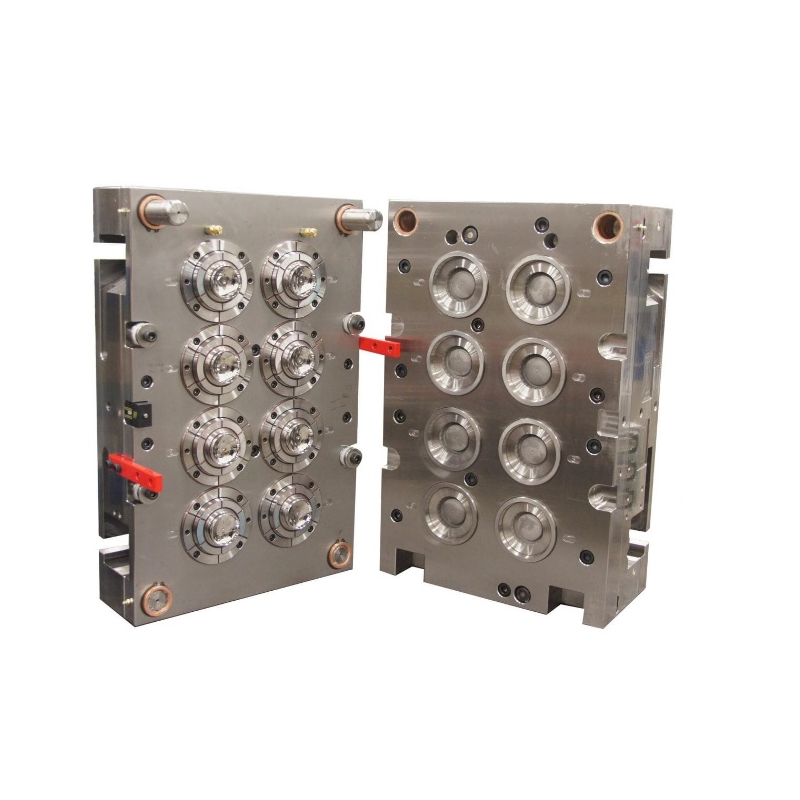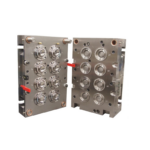Overview
Plastic injection molds for medical parts are highly specialized tools designed to produce precision components used in the medical industry. These molds are engineered to create parts with tight tolerances, high durability, and biocompatibility, ensuring they meet strict regulatory standards. The injection molding process involves injecting molten plastic into a custom-designed mold cavity, which then cools and solidifies to form the final part. This technique is ideal for producing high volumes of consistent, complex medical components such as syringes, surgical instruments, and connectors, with minimal waste and maximum efficiency.
Basic Information
Mold Type: Plastic Injection Mold
Mold Material Options:P20, 718, 738, NAK80, S136
Mold Base Standards: HASCO, DME, MISUMI, JIS, LKM, etc.
Mold Runner System:Cold Runner / Hot Runner
Mold Gate Options:Slide Gate, Sub Gate, Pin-point Gate
Cavity:Single or Multi-Cavity
Design Software Supported:UG, PROE, CAD, SOLIDWORKS
Molding Equipment Used:CNC, Wire Cutting, Milling Machine, EDM
Compatible Raw Materials:ABS, PP, PC, PA6, PA66, PVC, POM, PMMA, PS, etc.
Packaging Method:Wooden pallet or carton
OEM Services:Available—please provide 2D/3D files or samples
Lead Time:Approximately 30 days
One-Stop Service for Molds
– Initial Consultation: Assess client needs and provide expert advice on design, material selection, and tooling requirements.
– Custom Design: Create tailored designs based on client specifications, utilizing advanced CAD and 3D modeling tools.
– Tooling Fabrication: Manufacture precision molds and tooling using high-quality materials and state-of-the-art machinery.
– Prototype Development: Produce and refine prototypes to validate designs and ensure they meet client expectations.
– Comprehensive Testing: Conduct rigorous testing to verify mold performance, including functionality, durability, and accuracy.
– Surface Finishing: Apply various surface treatments such as polishing, coating, and texturing to achieve desired aesthetics and functionality.
– Production Readiness: Prepare molds for mass production, including final adjustments and quality checks.
– Logistics Management: Handle the complete logistics process, including packaging and shipping to ensure timely and safe delivery.
– Installation Support: Provide guidance and assistance with mold installation and setup to integrate seamlessly into client production lines.
– Quality Assurance: Implement stringent quality control measures throughout the process to ensure all products meet industry standards and client specifications.
– After-Sales Service: Offer ongoing support for maintenance, troubleshooting, and modifications to ensure long-term satisfaction and optimal performance.
The Production Process of Mold:
-
Design for Manufacturability (DFM) Report
– Develop a comprehensive DFM report that evaluates the design’s feasibility and identifies potential manufacturing challenges. This includes assessing the product design for optimal moldability and cost-effectiveness.
-
Mold Design
– Create detailed and precise mold designs using advanced CAD software. This step involves defining mold geometry, cavity layout, and essential features based on the product specifications and requirements.
-
Material Selection
– Choose high-quality materials for mold construction, such as steel alloys or specialized polymers, based on the requirements of the product and the intended application.
-
CNC Machining
– Utilize CNC (Computer Numerical Control) machines to precisely cut and shape mold components. CNC machining ensures high accuracy and consistency in mold parts production.
-
Laser Cutting
– Employ laser cutting technology for intricate and detailed cuts in mold components. This process provides high precision and clean edges, essential for complex mold designs.
-
Wire Cutting
– Use Wire EDM (Electrical Discharge Machining) to cut intricate details and complex shapes in the mold components. Wire cutting is critical for achieving high precision and fine tolerances.
-
Grinding
– Perform grinding to refine mold surfaces and ensure smooth finishes. This process enhances the accuracy of mold components and removes any residual machining marks.
-
Assemble Mold
– Assemble all mold components, including cavities, cores, and inserts, into a complete mold structure. This step involves fitting parts together with precision to ensure proper functionality.
-
Stamping
– Apply stamping processes to create specific features or impressions on the mold. Stamping is used for adding logos, text, or other surface details as required.
-
Sample Inspection
– Conduct thorough inspections of sample molds to verify that they meet design specifications and quality standards. This includes testing for functionality, accuracy, and overall performance.
-
Mass Production
– Once the sample mold is approved, initiate mass production. This phase involves producing molds in large quantities, ensuring consistency and quality across all units.
-
Cleaning
– Clean molds thoroughly to remove any residual debris or contaminants from the manufacturing process. Proper cleaning is essential to maintain mold quality and ensure optimal performance.
-
Packing
– Package the completed molds securely to prevent damage during transportation. Packaging includes protective materials and labeling to ensure safe and accurate delivery.
-
Delivery
– Coordinate the delivery of molds to the client’s location. This step involves logistics management to ensure timely and secure transportation of the molds.
-
After-Sales Service
– Provide comprehensive after-sales support, including maintenance, troubleshooting, and any necessary adjustments. This ensures that molds continue to perform well and meet client expectations over time.
Factory Show
Our 4,500㎡ factory boasts over 20 years of OEM expertise and is equipped with world-class machinery, including Roders, Makino, Sodick, and YCM. Leveraging advanced tooling technology, we achieve micron-level precision in tool manufacturing. With ARBURG, Miltitech, and 2KM equipment, we produce ultra-precision components as small as 0.02g and as thin as 0.1mm. Our ISO-certified Class 8 medical-grade dust-free workshop ensures a controlled environment for high-quality medical device components.



